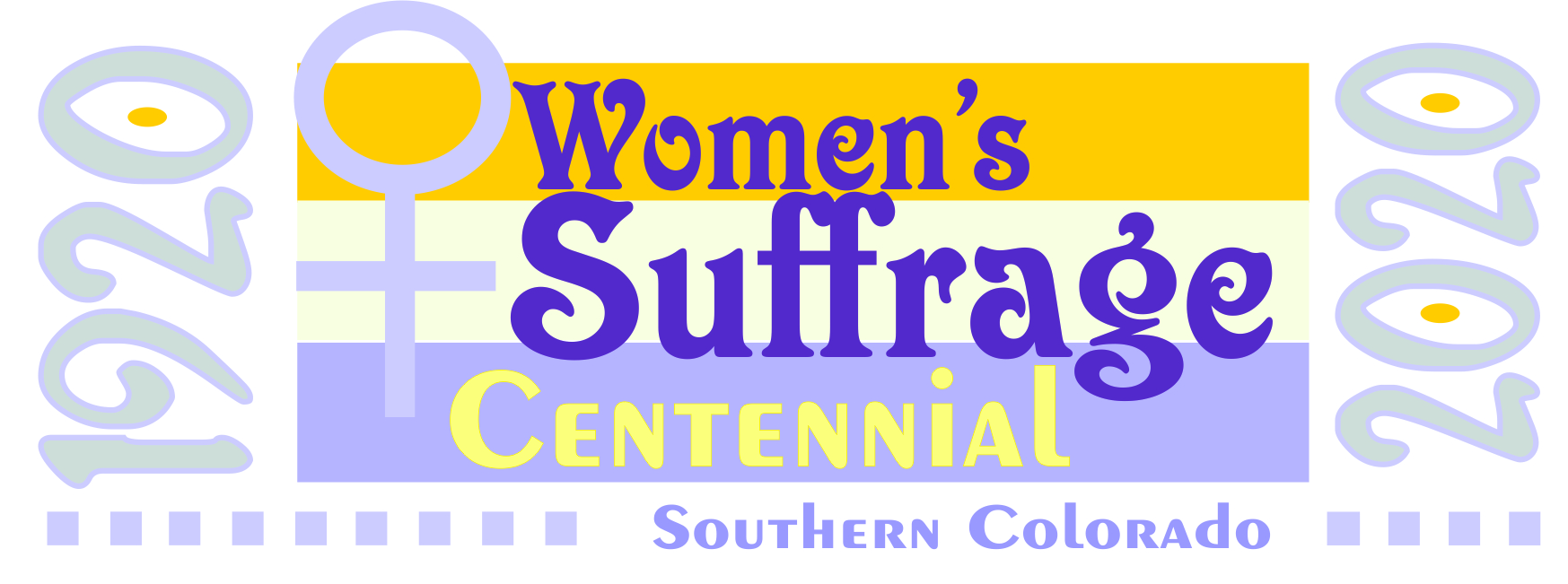by Anna Brownlee
“ATTENTION, LADIES!… All who are interested in the reforms that are agitating the public mind, industrial, social and political; all who are interested in temperance, suffrage, abolition of child labor, enforcement of education, shorter hours, better wages, elevation of the human family, are cordially invited to attend the meeting…”
Colorado Daily Chieftain, July 6, 1890
Things got exciting in January 1893 when a Colorado bill to extend suffrage to women was introduced and argued. If passed, the bill would bring the question of suffrage before the voters in November. The General Assembly did not have the authority to grant suffrage on its own. February 20th, the committee on the suffrage bill were not sure if they were ready to move along to a second reading and voting by the house or to table the whole thing. The next day, “There was little show of the fight of yesterday’s session on the woman’s suffrage bill when the house was called to order this morning…Members lounged lazily or read the morning papers while the clerk read the minutes, a few strolling out into the ante rooms to enjoy a morning smoke before engaging in the turmoil of the day…” February 24th, a petition signed by over 6,000 requested that the House pass the female suffrage bill. Through all this reporting on the new bill, the Chieftain refrained from providing commentary until March 9th, when all it had to say in response to the bill was, “A woman’s suffrage bill was passed by the lower house of the Legislature yesterday, and is about to come up in the senate. It is a great big mistake.”
The Chieftain went back and forth between, “It’s not natural” type of commentary like this lengthy article and pieces from its WOMAN’S WORLD IN PARAGRAPHS by columnist Eliza Archard Conner in which the author extolled the success of women’s suffrage in places like Kansas and Wyoming. In May, the bill passed through the Colorado House and senate and would be on the November ballot. The Chieftain pages quickly become filled with announcements and reports of suffrage meetings and lectures in Pueblo, and a Pueblo Woman’s Suffrage league was formed, its officers named in the paper: “President. Mrs. Dr. Fellows, vice president Mrs. G. S. Mitchell, treasurer Mrs. Dr. Walters, secretary Mrs. W. J. Kerr”. Their meetings were regularly held at the ladies’ parlor of the Grand Hotel. The Pueblo branch of the Women’s Christian Temperance Union (W.C.T.U.), which the paper supported, had an active suffrage component since it was founded in the 1880s.
Through the last few months of 1893, the Chieftain seemed to withhold commentary on the vote until Election Day, November 7th, when it gave this neutral comment, “Another question which is creating no little interest is equal suffrage. The indications are that it will be carried.” And this on November 8th as the results coming in showed that Colorado suffrage had indeed passed, “It looks as if the woman suffrage ticket were elected, and it may be thought that the political future would thereby be complicated and changed. Not at all. The number of votes will be increased, but the ratio of political division will remain much the same as at present.” A month later the first woman to register to vote in Pueblo County was Julia V. Sisson, an employee at a local store, the second was Mrs. J.S. Sperry, a member of both the Pueblo Equal Suffrage league and one of the founding members of the Pueblo branch of the W.C.T.U. The Chieftain reported somewhat cheerfully, “Now that the movement has been started it is expected that a considerable number of women will go through the ordeal every day. Mr. Henderson has made arrangements to devote all his time if necessary to attend personally to the registration.”
The decade began with the Chieftain still clearly against female suffrage. However, despite the paper telling women not to get their hopes up, or saying that Colorado didn’t favor woman suffrage, the paper also devoted a lot of space to women in Pueblo holding their conventions and lectures on social topics including suffrage because the Chieftain supported temperance. Once suffrage passed, the paper printed the activities of local suffrage groups working to get women registered and provided lots of coverage for the campaign of Carrie Clyde Holly of Pueblo for state representative.
Change Over Time 1870s
Change Over Time 1880s
Change Over Time 1890s
Author and Process of Change Over Time Essays
